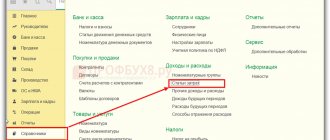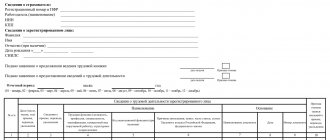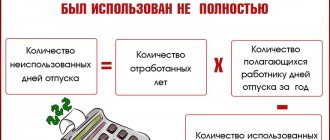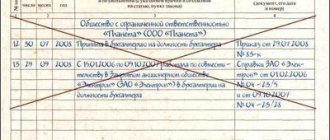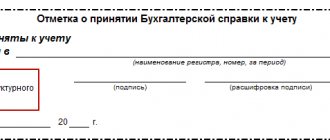Competent personnel management is the key to a company’s success and a guarantee of its prosperity. It includes the correct distribution of responsibilities, the creation of a favorable atmosphere within the enterprise, conducive to normal interaction between employees. Professional employee management includes motivating them or creating a reward system based on the individual achievements of each employee to the company.
Causes of problems with personnel management
Working with personnel requires special qualifications and experience. It is impossible to manage an enterprise without having the talent to do so. Creating a truly cohesive team can be difficult, but it can be achieved by building the right strategy.
The most common mistakes in personnel management:
- Lack of necessary discipline, including incentives and fines, internal regulations, mandatory execution of job descriptions.
- Company policy that does not provide for the manifestation of initiative on the part of employees, does not involve consideration of incoming new ideas and proposals.
Many inexperienced managers may encounter management problems.
The procedure for submitting an application to the employment center has been changed
According to the Ministry of Labor and Social Protection of the Russian Federation, from April 11, you can register with the employment center only online through the “Work in Russia” portal. This procedure will be in effect until the end of 2020.
Now, on the portal page, a citizen only needs to fill out an application and resume for the employment authorities to begin searching for suitable vacancies.
The new procedure eliminates the need to provide a copy of the work record book, dismissal order and a certificate of average monthly earnings from the previous employer. Information about the previous place of work and level of remuneration, as well as the accuracy of the data in the application, will be clarified by employment centers through interdepartmental interaction.
If there is an offer, vacancies will be sent to the citizen in his personal account. There, the applicant will be able to respond to an offer that interests him, and the employer, in turn, will be able to review his resume and invite him to work or for an interview. On the 11th day, the citizen will be assigned a benefit if during this time the person was unable to get a job.
Previously, the decision to recognize a citizen as unemployed was made by the employment service authorities after a personal application from the citizen with presentation to the employment center of a passport, work record book or documents replacing it, documents certifying his qualifications, a certificate of average earnings for the last three months at the last place of work (service) . If the employment authorities could not find a suitable job for the applicant within 10 days, the applicant was recognized as unemployed.
Previously, during these 10 days, a citizen had to personally visit employment centers to receive information about vacancies and report on whether he was accepted for the proposed positions (bring documents about refusal of employment).
According to the Ministry of Social Policy of the Kaliningrad Region, those applications that residents of the region previously sent remotely to the Employment Center do not need to be re-sent to the new all-Russian website. All data will be transferred by employees of the Employment Center.
Instructions for registering a state service to assist citizens in finding a suitable job
Please note that you must have a verified State Services account (ESIA). More information about obtaining a confirmed account can be found on the State Services website.
Step 1
1. Log in to the “Work in Russia” portal using a confirmed State Services account (USIA). 2. Click on your full name in the upper right corner, in the menu that opens, click on the item “Applying for unemployment benefits.” 3. On the page that opens, click “Application for providing a citizen with a government service to assist in finding a suitable job.” 4. In the application form that opens, check the information transferred from your State account.
1. If you find incorrect information, correct the information on the State Services portal in your Personal Account. Make sure that the information on the State Services portal is presented correctly, and start filling out the application form again on the “Work in Russia” portal. 5. Fill in the fields that can be changed.
Important:
1. In the “Resume” block, attach an existing resume from the list. If you have not created a resume on the “Work in Russia” portal, then click the “Create resume” button. The resume creation page will open in a new tab. Fill out your resume and click the “Save” button. Return to the application page and select the resume you just created from the list. 2. In the “Place of Residence” block, the place of registration must be indicated in the same way as it is indicated in your passport. 3. In the block “Place of provision where you want to receive the service, as well as the Employment Service. Remember, the choice of an employment service unit is made taking into account the place of registration at the place of residence. 6. Click the “Submit Application” button. Please note that processing your application will take some time. You can find out the status of your application on the “Work in Russia” portal. How to do this is described in Step 2.
Step 2
1. Log in to the “Work in Russia” portal using a confirmed State Services account (USIA). 2. If the status of the application has changed, a red exclamation mark will appear next to the icon. 3. Click on your full name in the upper right corner, in the menu that opens, click on the item “Applying for unemployment benefits.” 4. On the page that opens, you can view the current status of your application.
Explanation of statuses
Status Meaning REGISTERED You are registered as a job seeker by the Employment Center. PROCESSING The Employment Center has accepted your application and will try to find suitable vacancies for you. If you receive vacancies from the Employment Center, you need to contact the employers indicated in the vacancies and arrange an interview. REQUEST FOR INFORMATION The “Work in Russia” portal has sent a request to the Pension Fund of the Russian Federation to receive information about your work activity. INSUFFICIENT INFORMATION The absence of information about your dismissal, transmitted by the employer, in the Pension Fund of the Russian Federation will not allow you to be registered as unemployed and receive benefits. You can ask your employer to enter information about your dismissal into the Pension Fund of the Russian Federation. In case of refusal, you can contact the State Labor Inspectorate.
VACANCIES OFFERED The Employment Center has selected vacancies for you and sent your resume to the employer. You can track your interaction with the employer regarding the interview in your personal account in the “Responses and Invitations” section.
BENEFITS ASSIGNED The Employment Center has decided to recognize you as unemployed. The benefit will be calculated in accordance with the information received and sent to you for receipt by the method selected in the application.
BENEFITS DENIED The Employment Center has refused to recognize you as unemployed. EMPLOYED The provision of the service is completed. APPLICATION WITHDRAWN You have withdrawn your application.
Manager's rules: how to effectively manage staff
At the head of any company there is a leader who recruits employees independently or with the help of an HR manager. At the same time, management personnel must become an example for their subordinates, remaining demanding not only of others, but also of themselves.
Interview
Main objectives of the interview:
- direct acquaintance with the candidate, determination of his competence and level of qualifications, personal qualities, degree of interest in the business proposal;
- presentation of information about the enterprise, its activities, the advantages of a particular vacancy, job responsibilities, the process of adaptation of new employees, the availability of a probationary period, corporate training;
- discussing the demands put forward by the other party, searching for an optimal solution;
- giving the candidate the opportunity to think about the offer and make his own decision.
According to practice, more than 80% of applicants are eliminated after the first interview. The remaining candidates are subject to thorough psychological and professional analysis. An effective way to select personnel is testing. It allows you to select the best candidates and weed out unqualified employees.
Tests help to identify the level of intelligence, the ability to accurately process information, the degree of attention and concentration, and visual memory.
But the final decision is made using more formalized methods of obtaining information - testing does not provide an objective assessment of the positive qualities of a person.
Personnel adaptation upon hiring
Newly hired employees face a lot of difficulties; they need help to quickly get used to the team. The faster a person begins to participate in the production process, the higher the labor efficiency of the entire enterprise will become. When managing a company, it is necessary to ensure that each newcomer learns the social norms of behavior that apply in the team and establishes normal business relationships with management and other employees of the company.
Ways to create conditions for adaptation:
- conducting trainings and conversations between new employees and their mentors;
- organizing seminars and courses for applicants for leadership positions;
- professional training for mentors and curators;
- gradual complication of tasks and expansion of functional responsibilities of newcomers;
- creating individual assignments for beginners;
- using role-playing games for team building.
Adaptation occurs at the production, social, psychological, and professional levels.
Understand the employee
Good management means that a leader can establish contact with his subordinates.
The boss must show the entire team that he values his employees. A manager should not constantly punish employees; most problems can be resolved through open discussion.
Each person is an individual with his own beliefs, life priorities and goals. A competent HR manager and leader must understand this and take into account the needs of each employee of the company. Every person who gets a job in a company pursues the following goals:
- solving financial problems by obtaining a stable income;
- professional self-realization and career growth;
- opportunity for self-expression.
The manager should identify the goals of the subordinate and find an approach to him.
Teamwork
To work as a team, each employee must understand that only by making common efforts can the necessary results be achieved. The ability of workers to work decreases if goals for the current project are not set, and there are not enough resources to complete the assigned tasks. Team spirit disappears if conflicts constantly occur in the team. Management can solve such problems by creating the necessary mood among employees.
Delegation
The tasks of management include the correct distribution of tasks among employees. Sometimes the manager himself can assign part of his own responsibilities to his subordinates. Delegation motivates employees to work and promotes their self-realization. It helps to distribute routine work among performers, as well as tasks for preparing the project.
How to control subordinates?
Control helps the manager monitor the state of the business. A person managing personnel must understand that all people are different, and some methods of control may not work at all on someone. Management needs:
- set the right tasks to complete;
- take into account the degree of productivity of each employee;
- carry out unannounced spot checks;
- allocate time for personal communication with subordinates;
- establish penalties for failure to complete assigned tasks.
Personnel planning
Personnel planning allows you to determine the optimal number of jobs. It is also carried out to understand what specialists the company needs.
The HR department carries out such planning to attract qualified employees and to get rid of ineffective employees.
At the same time, the psychological potential of a particular specialist, level of knowledge, and motivation are assessed.
HR Strategies
Strategic work is aimed at the formation and further development of the organization’s corporate culture. The management strategy includes:
- creating a favorable image of the company and employer;
- identifying priority areas for investing in personnel;
- support of specialists who have the skills, knowledge and talents necessary for their work.
Any organization can exist and develop normally only if it employs competitive and qualified employees. Strategic management allows you to determine in which direction personnel should develop in order to increase the company's potential in the long term. The objects of such management are the employees themselves and their working conditions. Among all the strategies we can highlight:
- entrepreneurial strategy;
- profitability strategy;
- dynamic growth strategy;
- liquidation strategy.
The right motivation
Motivation can be tangible or intangible. In the first case, the employer uses a system of rewards and penalties. The subordinate receives bonuses and all kinds of bonuses provided that the work is done well, otherwise the employee receives a salary without allowances. Methods of non-material motivation:
- Promotion of the most productive employees.
- Creating a favorable atmosphere in the company, forming a friendly, cohesive team.
- Stable working conditions, including payment of “white” wages, social security, official employment.
- Organization of collective recreation, entertainment events, corporate events, joint outings, sports competitions.
- Corporate training that allows employees to improve their skills and is paid for by the company.
Each manager independently chooses one or another reward system in his organization.
Test with answers on the topic “Principles of time management in the work of a nurse”
Today, it has become the norm for a nursing manager to stay late at work. This limits his ability to recuperate, personal productivity, increases stress and the number of conflict situations with colleagues, patients and loved ones. However, there is a way out. You can manage everything if you manage your time wisely and learn time management skills.
1. Self-management requires at the first stage
1) positive self-attitude; 2) self-awareness; ! 3) self-acceptance; 4) self-control; 5) adaptation.
2. When dealing with time individually, when the “internal chronometer” is in a hurry, it is recommended
1) do more; 2) do not lose control of time; 3) less distractions, more concentration on the task; 4) more concentration on yourself, less stress;! 5) work confidently and calmly.
3. Areas of life that determine the specialist’s orientation towards others
1) finances-health; 2) hobby-health; 3) work-family; ! 4) work-health; 5) family-health.
4. Planning tasks based on emotional overtones involves drawing up a case scenario
540593
1) for 3 days; 2) for 1 month; 3) for 1 quarter; 4) for 1 day; ! 5) for 1 week.
5. With an individual relationship with time, when the “internal chronometer” is accurate, it is recommended
1) less distractions, more concentration on the task; 2) do not lose control of time; 3) work confidently and calmly; 4) accomplish more; ! 5) more concentration on yourself, less stress.
6. Areas of life that determine a specialist’s self-orientation
1) work-family; 2) work-health; 3) finances-health; 4) hobby-health; ! 5) family-health.
7. Taking 100% of your time is contrary to the following time management strategy
1) time reservation; ! 2) taking into account the Pareto rule; 3) planning; 4) reduction of “chronophages”; 5) multitasking.
8. Time management must take into account planning
1) rest; ! 2) time to travel to work and back; 3) delays at work; 4) lunch; 5) meetings.
9. Managing the “flow” of cases is necessary for prevention
1) creative tension; 2) accidents; 3) relaxation; 4) overvoltage; ! 5) crises.
10. The ability to properly “discharge”, cope with stress, and fully use one’s personal resources include
1) to perception; 2) to self-government; ! 3) to communication; 4) to reflection; 5) to interaction.
11. People with higher performance in the morning belong to the chronotype
1) “bullfinches”; 2) “owls”; 3) “pigeons”; 4) “nightingales”; 5) “larks”. !
12. Periods of decline and rise in physical and mental activity during the day are determined by
1) intellectual biorhythm; 2) physical biorhythm; 3) circadian rhythm; ! 4) emotional biorhythm; 5) chronotype.
13. The rule of planning tasks according to emotional coloring recommends moving from attractive to unattractive tasks
1) after lunch; ! 2) quickly; 3) gradually; 4) rarely; 5) in the evening.
14. Organizing and using time effectively is called
1) time resource; 2) self-management; 3) time management; ! 4) autogenic management; 5) time perspective.
15. The cause of professional stress and the threat of a nervous breakdown, according to B. Russell, is
1) a feeling of super-importance of one’s work; ! 2) parallel execution of several tasks; 3) multitasking; 4) excessive control of the manager; 5) negative psychological climate in the team.
16. Cyclic changes in the general physical state of the human body are determined by
1) circadian rhythm; 2) physical biorhythm; ! 3) emotional biorhythm; 4) intellectual biorhythm; 5) chronotype.
17. All cases are divided into groups according to emotional coloring
1) super important, important, unimportant; 2) attractive, neutral, unattractive; ! 3) extra-urgent, urgent, non-urgent; 4) excellent, good, satisfactory, unsatisfactory; 5) joyful, sad.
18. A leader’s strategy, which allows you to manage the intensity of communication and the flow of visitors, is called
1) delegation; 2) stop micro-management; 3) personal goal setting; 4) appointment of reception hours; ! 5) control of what has been accomplished.
19. Self-management requires at the second stage
1) self-control;! 2) adaptation; 3) self-awareness; 4) self-acceptance; 5) positive self-attitude.
20. The success of professional activity depends primarily
1) from motivation; 2) from the mood of the psyche; ! 3) from experience; 4) from skills; 5) from knowledge.
21. Contacts with patients, colleagues, subordinates require a state of mental activity
1) for sympathy; 2) for reflection; 3) for generalization; 4) for communication;! 5) for understanding.
22. The rule of planning tasks by emotional coloring determines the beginning and end of the working day
1) unattractive or neutral matters; 2) unattractive affairs; 3) only attractive things; 4) only neutral matters; 5) attractive or neutral affairs.!
23. Limitations on the activities of a nurse are
1) age characteristics;! 2) character traits; 3) abilities; 4) deficits; 5) surpluses.
24. What relates to ways to manage the “flow” of incoming cases
1) agree on the timing;! 2) increase productivity; 3) give up perfectionism; 4) increase operating time; 5) take into account biorhythms.
25. Irrational waste of time is called
1) “black holes”; 2) “failures”; 3) “the tricks of Chronos”; 4) “losses”; 5) “chronophages”.!
26. In an individual relationship with time, when the “internal chronometer” lags behind, it is recommended
1) more concentration on yourself, less stress; 2) work confidently and calmly; 3) less distractions, more concentration on the task;! 4) do not lose control of time; 5) do more.
27. Cyclic changes in a person’s intellectual abilities are determined by
1) chronotype; 2) emotional biorhythm; 3) intellectual biorhythm;! 4) physical biorhythm; 5) daily rhythm.
28. The limitations of a specialist - getting stuck on a task, wasting time, a small number of completed cases - are a consequence of such a personal quality as
1) initiative; 2) anxiety; 3) perfectionism;! 4) spontaneity; 5) aggressiveness.
29. People with relatively high performance in the evening and at night belong to the chronotype
1) “nightingales”; 2) “bullfinches”; 3) “owls”;! 4) “pigeons”; 5) “larks”.
30. Minimum number of scales to describe aspects of a specialist’s life
1) 8; 2) 1; 3) 4;! 4) 2; 5) 9.
Article Rating
Modern approaches to managing subordinates
As in any company, so in a store, the work process must be properly organized. When managing a team, a leader needs to adhere to the following rules:
- Self-organization - the boss must set an example for his subordinates by fulfilling his duties, observing the dress code and maintaining punctuality.
- Maintaining good relationships with all employees, establishing communications.
- Timely resolution of conflicts between employees.
An HR manager must treat each employee as an individual, encouraging each person's achievements.
In the configuration “Salaries and personnel management 8 for Kazakhstan”, ed. 3.1
Quarantine period - non-working days
Quarantine days are defined as additional days off, i.e. working hours are decreasing.
In order not to make adjustments to the production calendar and, as a result, to the general work schedules of employees (there can be a large number of them), to adjust the standard working hours for employees who are “downtime”, you can use individual work schedules, where you can determine which days are working days, and which days off (section Salary
—
Time tracking
).
In this case, when auto-filling the document Calculation of salaries and contributions
working hours will be reduced by the number of additional days off due to quarantine. Thus, employee accruals will not be reduced and will be reflected according to the new reduced working hours.
Healthy
PRO payroll in the “Salary and HR 8 for Kazakhstan” configuration PRO working time accounting in the “Salary and HR 8 for Kazakhstan” configuration PRO transfer of employees to a structural unit in the “Salary and HR 8 for Kazakhstan” configuration
The quarantine period is simple, due to the state of emergency declared in the country
Payment for quarantine days as payment for downtime, for reasons beyond the control of the employee and employer.
When using this option, you must be guided by Art. 112 of the Labor Code of the Republic of Kazakhstan, which states that payment is made taking into account the conditions determined by labor and collective agreements, but not below the minimum wage.
To pay for downtime according to the minimum wage, it is necessary that in the plan of calculation types there is an accrual type with the purpose Payment for downtime for reasons beyond the control of the employer
, calculated using a separate document
Employee downtime
and a formula for calculating the minimum wage.
Further, payment for downtime is reflected in the Employee Downtime
(section
Salary
) with a type of downtime
Independent of the employer and employee
.
When filling out the list of employees, the calculation result will be performed automatically. The downtime period is indicated as a whole for the document. Therefore, if different employees have different downtime periods, you will need to enter several documents.
Important!
Downtime
option is enabled in the payroll calculation settings (section
Settings
-
Payroll calculation
-
Setting up the composition of accruals and deductions
-
Accounting for absences
).
If the downtime was only for part of the reporting month, then the downtime recorded in the Employee Downtime
will be automatically taken into account when calculating salaries using the document
Calculation of salaries and contributions
.
HR Tips
The head of the company should not encourage denunciations and gossip from his subordinates. The boss should encourage employees to be open and able to jointly solve problems and misunderstandings that arise. Employees should be reminded that the company must maintain chain of command.
It is worth abandoning extreme measures by developing a system of punishments and fines - this can cause the opposite effect, creating a “turnover” of personnel.
https://youtu.be/hXV3aF8vby4
The leader must convince employees that everyone needs to strive to achieve the same goal of well-being and prosperity of the organization, and the efforts of each person will be well rewarded.

